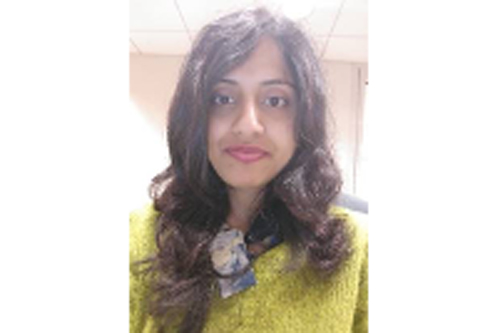Meet Pallavi Tyagi, the MSc Investment Management Scholar on the Global Women’s Leadership Programme
Passionate about impact investing, Pallavi Tyagi is using her financial skills to further humanitarian causes
Following a Bachelor’s in Commerce and Accounting at the University of Delhi, the logical next step in Pallavi Tyagi’s career would have been to become an accountant.
Instead, she enrolled at London School of Economics (LSE) to study MSc Development Studies and spent the following two years working for the United Nations. Today, Pallavi is a student on the MSc Investment Management and a Global Women’s Leadership Programme Scholar at the Business School (formerly Cass).
In high school, she took classes in business management and economics, and became fascinated with how the economy works and how money moves. “Becoming an accountant was the practical career choice, but I was motivated by more than just earning money,” she admitted. “I now realise this was not the most conventional path.”
Pallavi also believes that studying her first master’s in development broadened her research skills and taught her to think critically.
“My master’s allowed me to have a broad overview on evaluating the markets of a country,” she said.

Pallavi joined the Istanbul International Centre for Private Sector in Development, one of the six global policy centres of United Nations Development Programme (UNDP), analysing and assessing financing mechanisms that support skills development such as computer literacy in India. In her next placement, Pallavi moved to the UN Population Fund in New York, working on a project that develops impact bonds and private investments to support sexual and reproductive health globally.
Her projects with the UN instilled in her the value of impact investing—and in particular environmental, social and governance investment (ESG).
“The financial impact of Covid-19 has shown that financial services and traditional investors should be putting aside money to invest in causes such as green energy,” she said. “ESG assets are not risky, yield long-term results and take care of the environment. Not only is ESG the right thing to do, but it also helps diversify investors’ portfolios and protect them against negative shocks. Companies are increasingly judged by their ESG score.”
Speaking about pursuing the MSc Investment Management at the Business School, Pallavi sees the programme as a tool to gain deeper numerical and technical knowledge.
“I wanted to hone my financial knowledge. There’s a great mix of pure theory and practical knowledge,” she said. "The modules on equity and fixed income analysis and portfolio theory give you the practical knowledge of how to analyse a country’s debt and equity markets.”
As for her cohort, Pallavi believes her peers are all able to learn from another. “It’s great to see that the gender repartition in my cohort is balanced,” she said. “Studying with students who have industry experience is a great opportunity to learn and it’s a very supportive environment.”
In her reading and research, she has found many women working in retail finance and in back office, legal and compliance roles but less in quantitative jobs.
“I hope to see more women enrolling in STEM programmes. Women often start as analysts and then mid-career drop out. I want to see that changing and to see more women holding senior executive roles in areas like trading and asset management.”
Giving women the skills, network and knowledge to become business leaders are three of the core pillars of the Business School’s Global Women’s Leadership Programme. As an Executive Board member of the programme, Pallavi received the Global Women’s Leadership Scholarship, which supports women at all levels of their careers.
“I’m looking forward to all the networking opportunities the programme provides, especially now it’s harder to do in person in London or New York due to the pandemic.”
As for her hopes for her career, Pallavi is looking to gain private sector experience before returning to development. “I want to work as an asset manager to gain experience on managing money for big clients, charities and pension funds,” she explained.
“I want to learn as much as possible and then return to the public sector with new skills.”
Read more about the Global Women’s Leadership Programme at the Business School (formerly Cass).
